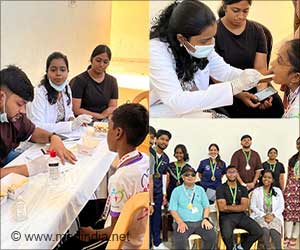An innovative solution was found at the St. Michael's and Toronto General Hospital when the first Canadian kidney transplant paired exchange occurred. The scenario was that of two Toronto couples, both with one spouse dying of kidney disease and the other unable to donate one of their own healthy kidneys because they weren't a compatible blood type.
Tom McCabe in his early 60s, gave one of his kidneys to 46-year-old Joe Leung. At the same time, Heidi Leung, 44, happily gave one of her healthy kidneys to Antoinette McCabe, in her late 50s. Joe Leung, the father of two teenage girls, said that he was grateful to have such a wife and Tom to give him and Antoinette another chance. Antoinette McCabe had been in renal failure for three years but knew that she would not survive if she had to wait for her turn in the routine schedule.Tom McCabe said that it is a wonderful program for anyone who wants to donate and cannot do. The doctors told the press conference that both the operations to remove the healthy kidneys from the donors were performed at the same time so neither donor could back out at the last minute. Doctors very consciously decided to keep the donors and recipients anonymous. Then several months after the operation, they gave the two couples the chance to meet.
Dr. Ed Cole, head of nephrology and renal transplantation at the University Health Network, said that the complicated procedure required four operating rooms and a total of about 40 people on surgical teams. Each kidney retrieval operation took one and a half hours, each transplant about two hours. Dr. Jeffrey Zaltzman, director of the kidney transplant program at St. Michael's said that they are at the mercy of organ donors. He said that paired exchange is one more way to increase organs for transplant. Statistics show that about 800 adults and children in the Greater Toronto Area alone and more than 1,000 in Ontario are waiting for kidney transplants.
The waiting list is long and about 2 % of them die each year waiting. The longer they wait for a transplant, the worse their outcomes. Research shows that receiving a kidney from a living donor gives the recipient the best survival rates of at least 15 to 20 years. On the other hand a transplant from a deceased donor lasts from 10 to 15 years. But the incompatibility factor again plays an important role which reduces the chance of transplantation. Cole said that paired kidney exchange is now used in the United States, Europe and Asia. This is an important initiative, an opportunity to save many lives. Hence in conclusion he said that they are putting in their best effort to set up a computerized pair registry for the benefit of the patients who are waiting for a kidney transplant.











